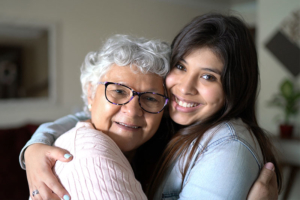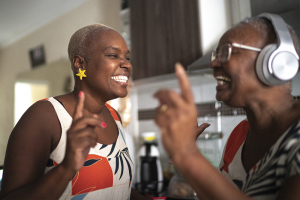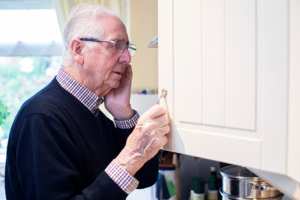How to Talk with the Doctor if You Suspect an Alzheimer’s Disease Diagnosis
 Distress. Fear. Embarrassment. The thoughts and feelings surrounding a potential Alzheimer’s diagnosis may cause older adults to keep their suspicions to themselves. A recently available AARP survey peeled away a few of the layers of emotion to get to the reason – namely, a concern over losing independence and becoming a problem to others.
Distress. Fear. Embarrassment. The thoughts and feelings surrounding a potential Alzheimer’s diagnosis may cause older adults to keep their suspicions to themselves. A recently available AARP survey peeled away a few of the layers of emotion to get to the reason – namely, a concern over losing independence and becoming a problem to others.
While there is some truth to those worries, there are also some misconceptions fueling them. As an example, nearly 50% of the participants, who were adults age 40 and over, believe they’re likely to get dementia as they get older. The truth is that just over 10% of seniors over age 65 are diagnosed with Alzheimer’s disease.
As a result, it is essential for seniors to communicate with their physicians for the practical, straightforward information they need – particularly if any warning signs of dementia [MS2] are being detected, such as:
- Memory decline which is disruptive to everyday life
- Planning/problem-solving challenges
- Problems with accomplishing once-familiar tasks
- Confusion and disorientation to time and place
- Vision issues and difficulty identifying color/contrast and judging distance
- Writing/speaking changes
- Losing things and leaving them in unusual spots
- A decline in judgment
- Social withdrawal
- Mood/personality changes
The following are some suggestions to help overcome any reluctance in talking to a doctor about dementia, and how to make the conversation as productive as you possibly can.
- Don’t put it off. The natural impulse might be to procrastinate bringing up something that may potentially be so life-changing. Nevertheless, time is of the essence in obtaining a proper diagnosis together with the most effective treatment.
- Bring a friend. It is comforting to have the support of a dependable friend, family member, or caregiver at the appointment. Ideally, this person can provide additional information to the physician as well as any concerns being noticed from their perspective.
- Make comparisons to then and now. Share with the physician the particular changes that are causing concern. For instance, a loved one may be a retired math teacher who, up until last month, didn’t need to think twice about balancing the checkbook, but recently is experiencing some frustration with the task.
The physician can review prescription drugs to see if adverse reactions are creating a problem, and schedule assessments and test to discover the best course of action.
Responsive Home Care’s kind and friendly caregiving companions are always on hand to accompany seniors to medical appointments and procedures, and also to help make life easier and more manageable in a number of other ways as well. Reach out to us at 954-486-6440 for more details on our home care services in Fort Lauderdale and the surrounding areas.

 A new study sponsored by the Alzheimer’s Association is uncovering some striking findings in how dementia may present differently in Hispanic people. While additional exploration is required to fully understand whether these differences are the result of social/cultural nuances or perhaps the dementia itself, it’s worthwhile information for Latino families to know.
A new study sponsored by the Alzheimer’s Association is uncovering some striking findings in how dementia may present differently in Hispanic people. While additional exploration is required to fully understand whether these differences are the result of social/cultural nuances or perhaps the dementia itself, it’s worthwhile information for Latino families to know.








